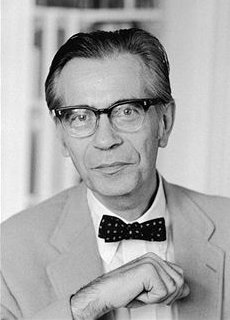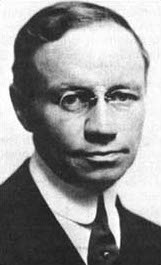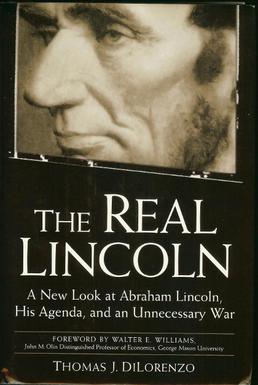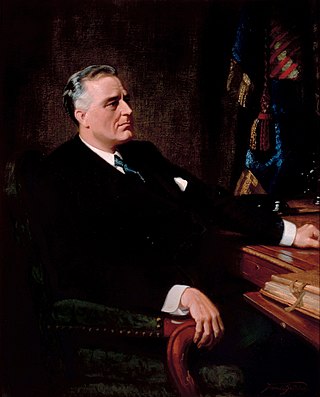
The Emancipation Proclamation, officially Proclamation 95, was a presidential proclamation and executive order issued by United States President Abraham Lincoln on January 1, 1863, during the American Civil War. The Proclamation had the effect of changing the legal status of more than 3.5 million enslaved African Americans in the secessionist Confederate states from enslaved to free. As soon as slaves escaped the control of their enslavers, either by fleeing to Union lines or through the advance of federal troops, they were permanently free. In addition, the Proclamation allowed for former slaves to "be received into the armed service of the United States". The Emancipation Proclamation played a significant part in the end of slavery in the United States.
American electoral politics have been dominated by successive pairs of major political parties since shortly after the founding of the republic of the United States. Since the 1850s, the two largest political parties have been the Democratic Party and the Republican Party—which together have won every United States presidential election since 1852 and controlled the United States Congress since at least 1856. Despite keeping the same names, the two parties have evolved in terms of ideologies, positions, and support bases over their long lifespans, in response to social, cultural, and economic developments—the Democratic Party being the left-of-center party since the time of the New Deal, and the Republican Party now being the right-of-center party.

Charles Austin Beard was an American historian and professor, who wrote primarily during the first half of the 20th century. A history professor at Columbia University, Beard's influence is primarily due to his publications in the fields of history and political science. His works included a radical re-evaluation of the Founding Fathers of the United States, whom he believed to be more motivated by economics than by philosophical principles. Beard's most influential book, An Economic Interpretation of the Constitution of the United States (1913), has been the subject of great controversy ever since its publication. While it has been frequently criticized for its methodology and conclusions, it was responsible for a wide-ranging reinterpretation of early American history.

Richard Hofstadter was an American historian and public intellectual of the mid-20th century. Hofstadter was the DeWitt Clinton Professor of American History at Columbia University. Rejecting his earlier historical materialist approach to history, in the 1950s he came closer to the concept of "consensus history", and was epitomized by some of his admirers as the "iconic historian of postwar liberal consensus." Others see in his work an early critique of the one-dimensional society, as Hofstadter was equally critical of socialist and capitalist models of society, and bemoaned the "consensus" within the society as "bounded by the horizons of property and entrepreneurship", criticizing the "hegemonic liberal capitalist culture running throughout the course of American history".

Neo-Confederates are groups and individuals who portray the Confederate States of America and its actions during the American Civil War in a positive light. The League of the South, the Sons of Confederate Veterans and other neo-Confederate organizations continue to defend the secession of the former Confederate States.

Vernon Louis Parrington was an American literary historian, scholar, and college football coach. His three-volume history of American letters, Main Currents in American Thought, won the Pulitzer Prize for History in 1928 and was one of the most influential books for American historians of its time. Parrington taught at the College of Emporia, the University of Oklahoma, and the University of Washington. He was also the head football coach at the College of Emporia from 1893 to 1896 and Oklahoma from 1897 to 1900. Parrington founded the American studies movement in 1927.

Herbert David Croly was an intellectual leader of the progressive movement as an editor, political philosopher and a co-founder of the magazine The New Republic in early twentieth-century America. His political philosophy influenced many leading progressives including Theodore Roosevelt, Adolph Berle, as well as his close friends Judge Learned Hand and Supreme Court Justice Felix Frankfurter.

The Real Lincoln: A New Look at Abraham Lincoln, His Agenda, and an Unnecessary War is a biography of Abraham Lincoln written by Thomas J. DiLorenzo, a former professor of economics at Loyola University Maryland, in 2002. He was severely critical of Lincoln's United States presidency.
Centre-right politics lean to the right of the political spectrum, but are closer to the centre. Parties of the centre-right generally support liberal democracy, capitalism, the market economy, private property rights, and a modest welfare state. They support conservatism and economic liberalism and oppose socialism and communism.
Conservatism in the United States is based on a belief in limited government, individualism, traditionalism, republicanism, and limited federal governmental power in relation to U.S. states. Conservative and Christian media organizations and American conservative figures are influential, and American conservatism is a large and mainstream ideology in the Republican Party and nation. As of 2021, 36 percent of Americans consider themselves conservative, according to polling by Gallup, Inc.

Brand Whitlock was an American journalist, attorney, politician, Georgist, four-time mayor of Toledo, Ohio elected on the Independent ticket; ambassador to Belgium, and author of numerous articles and books, both novels and non-fiction.
Kenneth Milton Stampp, Alexander F. and May T. Morrison Professor of History Emeritus at the University of California, Berkeley (1946–1983), was a celebrated historian of slavery, the American Civil War, and Reconstruction. He was a visiting professor at Harvard University and Colgate University, Commonwealth Lecturer at the University of London, Fulbright Lecturer at the University of Munich, and held the Harmsworth Chair at Oxford University. In 1989, he received the American Historical Association Award for Scholarly Distinction. In 1993, he won the prestigious Lincoln Prize for lifetime achievement given by the Civil War Institute at Gettysburg College.

Before, during and after his presidential terms and continuing today, there has been criticism of Franklin D. Roosevelt (1882–1945). His critics have questioned not only his policies and positions, but also accused him of trying to centralize power in his own hands by controlling both the government and the Democratic Party. Many denounced his breaking of a long-standing tradition by running for a third term in 1940.
In United States politics, modern liberalism, a form of social liberalism, is one of two current major political ideologies. It combines ideas of civil liberty and equality with support for social justice. Economically, modern liberalism supports government regulation on private industry, opposes corporate monopolies, and supports labor rights. Its fiscal policy opposes any reduction in spending on the social safety net, while simultaneously promoting income-proportional tax reform policies to reduce deficits. It calls for active government involvement in other social and economic matters such as: reducing economic inequality, increasing diversity, expanding access to education and healthcare, regulating economic activity, and environmentalism. Modern liberalism was formed in the 20th century in response to the Great Depression. Major examples of modern liberal policy programs include the New Deal, the Fair Deal, the New Frontier, the Great Society, the Affordable Care Act, and the Infrastructure Investment and Jobs Act.
Liberalism in the United States is based on concepts of unalienable rights of the individual. The fundamental liberal ideals of freedom of the press, freedom of religion, the separation of church and state, the right to due process, and equality before the law are widely accepted as a common foundation of liberalism. It differs from liberalism worldwide because the United States has never had a resident hereditary aristocracy, and avoided much of the class warfare that characterized Europe. According to American philosopher Ian Adams, "all U.S. parties are liberal and always have been. Essentially they espouse classical liberalism, that is a form of democratised Whig constitutionalism plus the free market. The point of difference comes with the influence of social liberalism and the proper role of government."
The furtive fallacy is an informal fallacy of emphasis in which historical outcomes are asserted to be the result of hidden misconduct or wrongdoing by decision makers. Historian David Hackett Fischer identified it as the belief that significant facts of history are necessarily sinister, and that "history itself is a story of causes mostly insidious and results mostly invidious." Although it may lead to a conspiracy theory, the fallacy itself consists in the assumption that misdeeds lurk behind every page of history. In its extreme form, the fallacy represents general paranoia.
This bibliography of Abraham Lincoln is a comprehensive list of written and published works about or by Abraham Lincoln, the 16th president of the United States. In terms of primary sources containing Lincoln's letters and writings, scholars rely on The Collected Works of Abraham Lincoln, edited by Roy Basler, and others. It only includes writings by Lincoln, and omits incoming correspondence. In the six decades since Basler completed his work, some new documents written by Lincoln have been discovered. Previously, a project was underway at the Papers of Abraham Lincoln to provide "a freely accessible comprehensive electronic edition of documents written by and to Abraham Lincoln". The Papers of Abraham Lincoln completed Series I of their project The Law Practice of Abraham Lincoln in 2000. They electronically launched The Law Practice of Abraham Lincoln, Second Edition in 2009, and published a selective print edition of this series. Attempts are still being made to transcribe documents for Series II and Series III.
The historiography of the United States refers to the studies, sources, critical methods and interpretations used by scholars to study the history of the United States. While history examines the interplay of events in the past, historiography examines the secondary sources written by historians as books and articles, evaluates the primary sources they use, and provides a critical examination of the methodology of historical study.
Consensus history is a term used to define a style of American historiography and classify a group of historians who emphasize the basic unity of American values and the American national character and downplay conflicts, especially conflicts along class lines, as superficial and lacking in complexity. The term originated with historian John Higham, who coined it in a 1959 article in Commentary titled "The Cult of the American Consensus". Consensus history saw its primary period of influence in the 1950s, and it remained the dominant mode of American history until historians of the New Left began to challenge it in the 1960s.
There has never been a national political party in the United States called the Conservative Party. All major American political parties support republicanism and the basic classical liberal ideals on which the country was founded in 1776, emphasizing liberty, the pursuit of happiness, the rule of law, the consent of the governed, opposition to aristocracy and fear of corruption, coupled with equal rights before the law. Political divisions inside the United States often seemed minor or trivial to Europeans, where the divide between the Left and the Right led to violent political polarization, starting with the French Revolution.









